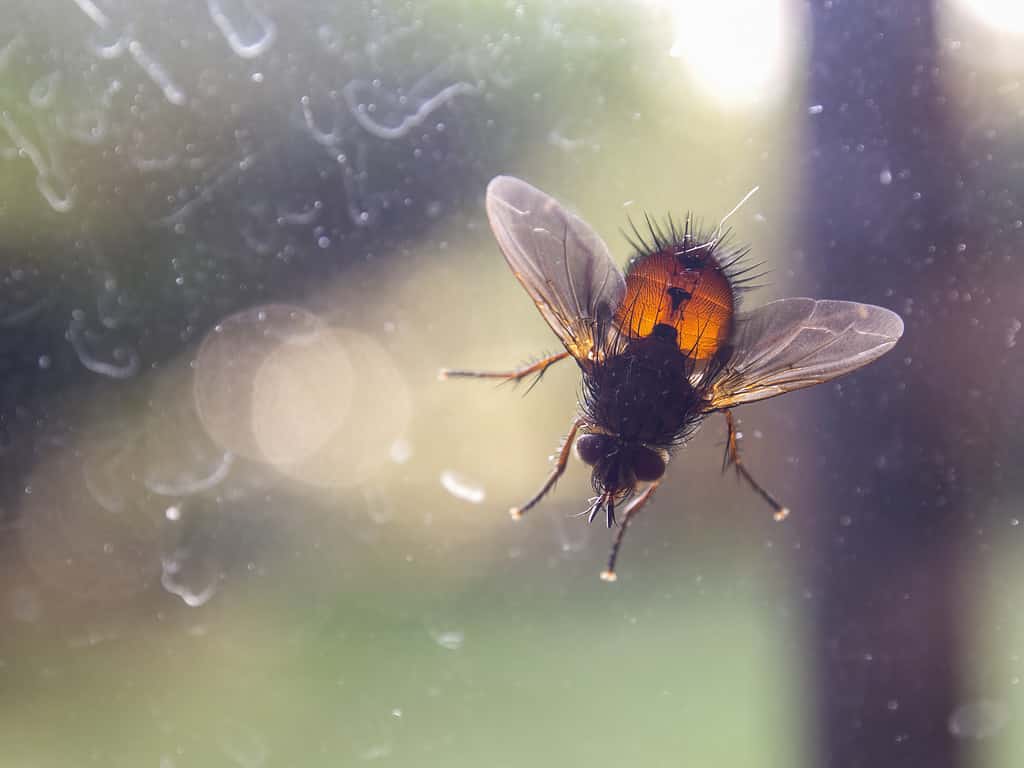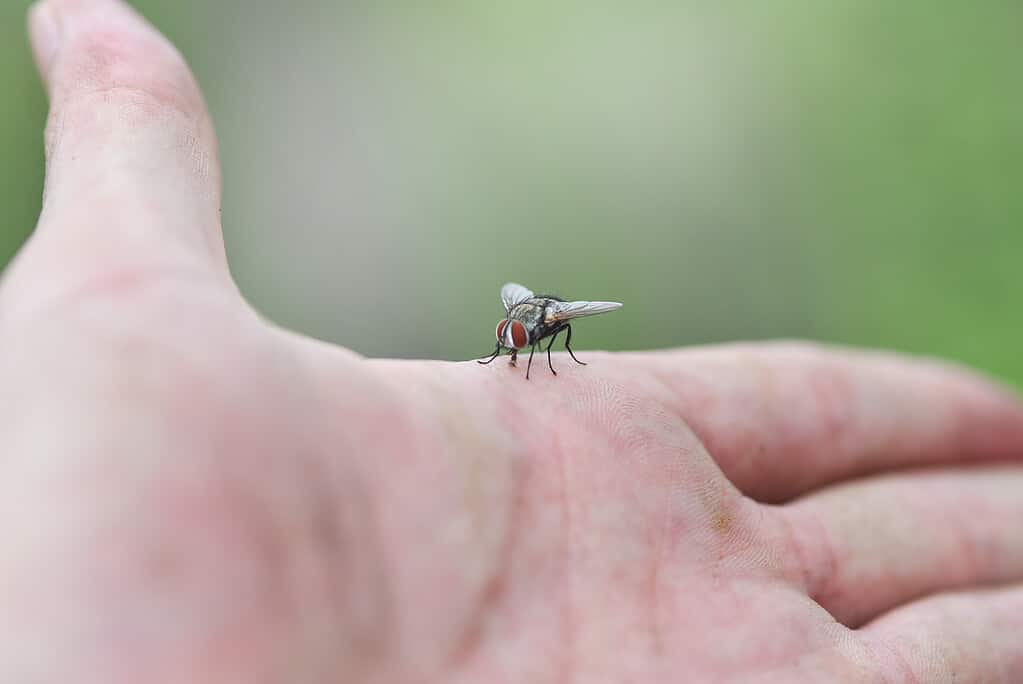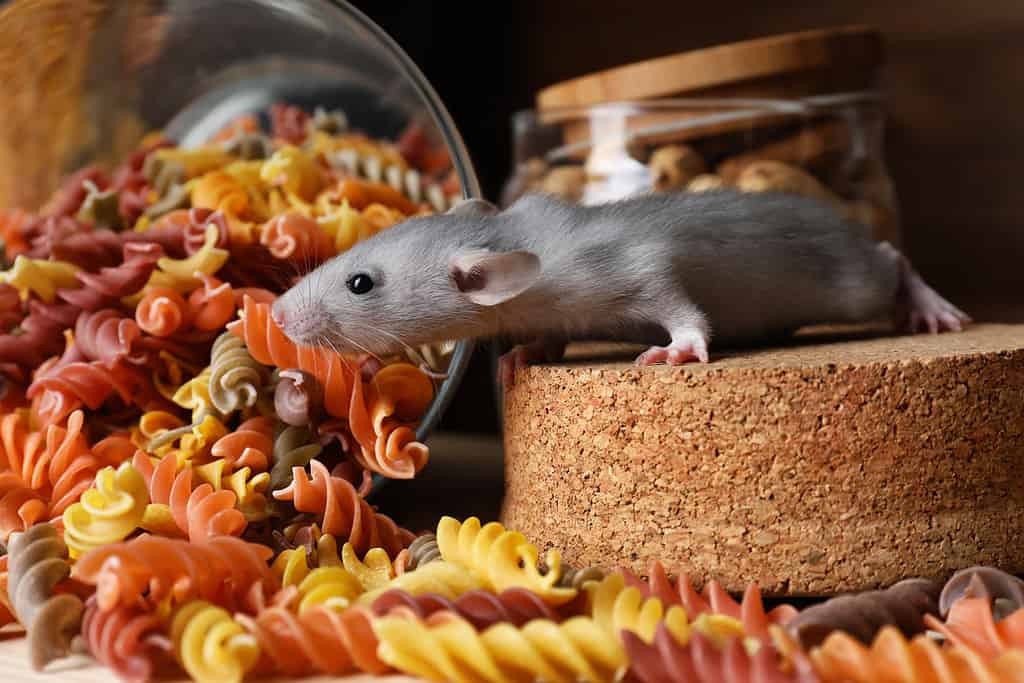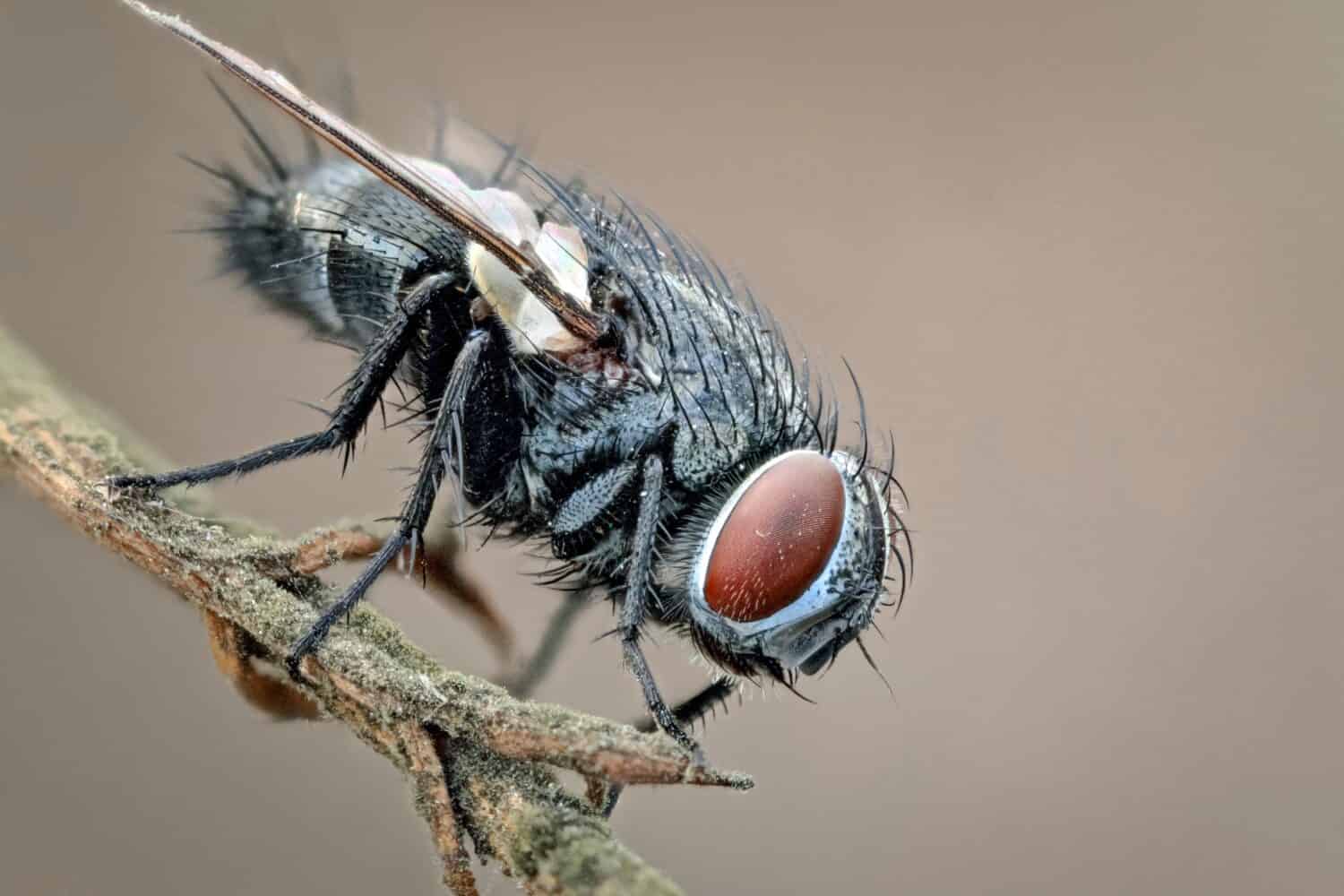Social media is infused with clever algorithms that seem to read your thoughts at times. If you’ve been looking for fly repellents, you may have come across a unique natural remedy for keeping those pesky, buzzy insects from rudely invading your home or yard. But does Irish Spring soap really work to keep flies away? Let’s find out!
Does Irish Spring Soap Keep Flies Away?

Trying to keep flies away can be overwhelming.
©iStock.com/Mauricio Acosta
The strong scent of Irish Spring bar soap is said to naturally repel flies. However, should you break out that bar of soap to keep those annoying flies away this season? Well, not exactly. When you combine Irish Spring soap with water, it does kill insects. Soapy water is lethal for flies, and when their bodies are covered with it, they dry out.
While this can be an effective homemade spray you put into a bottle, it doesn’t necessarily repel flies in the way you may want. The evidence for the efficacy of this trick when it comes to repelling flies is anecdotal. But it doesn’t mean it’s not worth trying. If you are interested in giving it a go, there are some tips you can follow from those who swear by the hack.
It’s said you should go for the classic Irish Spring scent, not any one of the newer variations. You don’t have to create a concoction with water or even use a spray bottle. You may just be able to hang a bar of this soap out in the area you’d like to repel flies in. Hang it how you ask? Just use a mesh or nylon bag! It may not be the most aesthetically pleasing but it just may work.
Another suggestion is to use the bar of Irish Spring soap without leaving it hanging in a mesh or nylon bag. Instead, you take the bar, head over to the doorways that lead outside, and rub it on the inside of the doorway to leave a creamy, crumbly layer. This is meant to create a barrier that keeps flies from wanting to venture into your home.
Natural Fly Repellants
Aside from this viral hack, you can try other known methods. For example:
- Essential oils (lemongrass, peppermint, lavender) mixed with water in a spray bottle. Use this repellent regularly to keep the flies away.
- Mix dish soap with vinegar in a spray bottle. It works double time because the scent is strong and repelling. It also kills any flies that come into contact with it.
- Within a closed environment, try citronella candles. You don’t have to do any mixing and they work to keep flies away while filling your home with a pleasant citrus scent.
- For a more hands-on approach outside, you can focus on planting the types of herbs that naturally repel flies and other insects. Some good go-to options include lavender, thyme, mint, and catnip.
Chemical Fly Repellants

Using traps can help keep these pests away.
©iStock.com/panida wijitpanya
If the flies are just too much or you’re just not the type to mix essential oils with water, there are some other options available. For example:
- Fly traps are covered with a viscous substance that draws these pests over and then kills them with the insecticide that makes up part of the sticky mixture. Hang them around the area you want to keep flies out of.
- If the hanging fly trap sounds too creative, just get the insecticide. It’s definitely effective but keep in mind it kills more than just flies. And as a fair warning: it’s not legal in all areas so be sure to double-check if it’s allowed where you live.
How to Keep Flies From Invading Your Home
While it would be nice to incubate your home from all pesky tiny insects or critters that manage to make their way inside, if you live out in a natural environment, it’s part of the deal. Nevertheless, there are ways to make your home less inviting to flies, and they do take a bit of work.
It’s worth it to ensure you can enjoy your space without that buzzing sound that gets uncomfortably close to your ear and your food. You can keep your snacks and loved ones safe from these hungry, sneaky, and disease-spreading intruders. Those methods include:
- Sealing! All those open cracks, scratches in the window screens, and gaps around your doorways need to be sealed. They’re tiny but flies are determined and if a fly can squeeze in, it will.
- Cleanliness is a must. Even after a summer party when all you want to do is wait to clean up the next day, you must clean up right away. For these pests, your party is their party. They love spilled drinks and sugary treats, so you must be proactive.
- Your trash bins, especially when the air gets stale indoors, are a hot spot for flies. Improve ventilation (with properly sealed window screens, of course) and make the space less inviting for flies!
Does Irish Spring Soap Repel Mice and Rats?

A rat is not likely to flee your home if its only deterrent is Irish Spring soap.
©Liudmila Chernetska/iStock via Getty Images
Another pest that some folks claim hates the scent of Irish Spring Soap is the mouse or rat. Campers and bloggers enjoy sharing DIY hacks that help people save money while solving problems. One of these is the famous soap brand vs rodents. They claim that leaving shavings of Irish Spring in areas of your home where rodents may congregate like attics, garages, utility rooms, or behind appliances will repel them, as they dislike the strong scent. The truth is, while some rodents may be repelled by the soap shaving, others may actually consume it! Rodents are always searching high and low for food, and they are not above chomping down on soap, even of the Irish Spring variety.
As in the case with flies, rodent problems need to be tackled with products that have been specifically designed to deal with them effectively, whether your choice be traps, poisons, or leaving the problem to an exterminator to solve. Soap will not go very far in repelling your home of rodents, especially if you have an infestation.
Thank you for reading! Have some feedback for us? Contact the AZ Animals editorial team.








